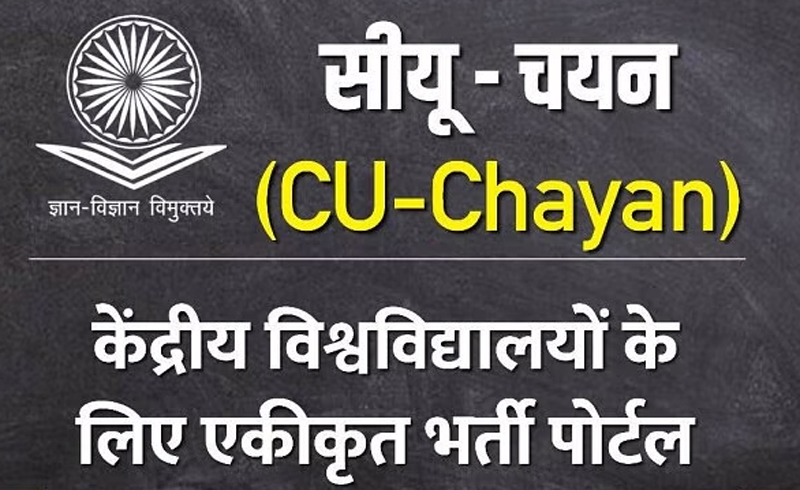The University Grants Commission (UGC) has announced the launch of a new recruitment portal called ‘CU-Chayan’ for faculty appointments in Central Universities (CUs). The portal aims to provide a user-friendly interface for both universities and applicants, with universities continuing to manage all stages of the recruitment process independently. Features of the platform for applicants include a consolidated listing of job openings across all participating universities, a single login for applying to any university, and personalised dashboards to manage the application process. The portal is only for faculty vacancies arising in Central Universities, and while current recruitments will continue without using the portal, all future recruitments will take place on it. The UGC will maintain the portal for the benefit of all Central Universities, and each university will continue to have autonomy in the recruitment process. For universities, the platform provides real-time tracking of applications, customised admin dashboards, and configurable advertisement rules, including a completely online process from initial application to screening.
Over 11,000 teaching posts are vacant in central higher education institutes. For universities, a centralised recruitment process gives a golden opportunity for standardisation and streamlining of the recruitment process. It can reduce administrative workload and costs, improve efficiency, and provide better access to a wider pool of candidates. A centralised system can also enable universities to track applications in real time, provide customised admin dashboards, and configure advertisement rules.
For applicants, a centralised recruitment process provides a consolidated listing of job openings across all participating universities, making it easier to search for suitable positions. It also provides a single login for applying to any university, a personalised dashboard to manage the application process, and the ability to transfer applications to any Central University that has advertised faculty positions. Additionally, registered applicants can receive an automatic email informing them about new vacancies advertised by any Central University.
Corruption, nepotism, and favouritism in the recruitment process of universities are serious issues that can have far-reaching consequences. They can lead to the selection of unqualified or underqualified candidates, the exclusion of deserving candidates, and the erosion of public trust in the integrity of academic institutions.
Ultimately, combating corruption, nepotism, and favouritism in university recruitment requires a commitment to transparency, accountability, and ethical behaviour. By implementing clear policies, establishing oversight mechanisms, and promoting awareness and accountability, universities can ensure that the recruitment process is fair, impartial, and based on merit.
A centralised recruitment portal can address all these issues in terms of accessing the best talent pool. By centralising recruitment, organisations can streamline their hiring process, reducing the time and effort required to find qualified candidates. This can lead to faster, more effective recruitment and give organisations access to a wider range of candidates than they might otherwise be able to find on their own. This is particularly useful for large organisations with multiple locations, as it allows them to tap into talent from different regions. Through this process, all candidates are evaluated using the same standards and criteria, which helps to ensure fairness and consistency in the hiring process. By pooling resources and expertise, organisations can make more effective use of their recruitment budget and staff time, which can lead to better outcomes.
This portal should also consider providing feedback to all candidates, including those who were not selected for the position. Feedback can help candidates understand their strengths and weaknesses and improve their future job applications. Transparency in recruitment processes is important for universities to attract a diverse pool of qualified candidates, ensure equal opportunities for all candidates, and enhance the reputation of the university as a fair and inclusive employer.
Overall, increasing transparency in faculty recruitment can help ensure that universities in India can attract and retain the best and most qualified faculty, which can ultimately benefit both students and the broader academic community.
Trending Now
E-Paper


